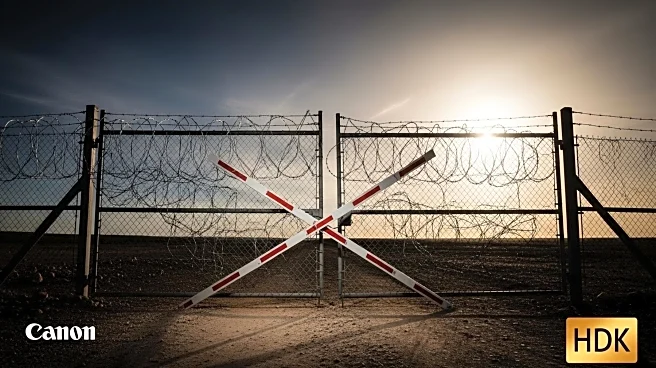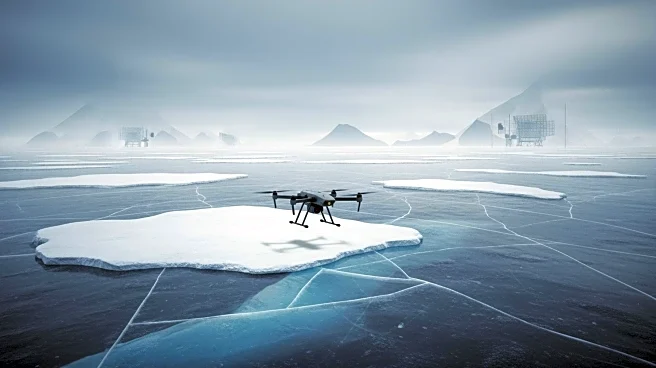What's Happening?
Russia has urged Poland to reconsider its decision to close the border with Belarus, citing the move as 'destructive' and warning of potential consequences. The closure was announced by Polish Prime Minister Donald Tusk in response to joint Russian-Belarusian military exercises. Russia's Foreign Ministry spokeswoman Maria Zakharova criticized the closure, suggesting it was intended to escalate tensions in Europe. The border closure reflects ongoing geopolitical tensions between Russia and European nations, particularly in the context of military activities and regional security.
Why It's Important?
The closure of the Poland-Belarus border is significant in the context of European security and diplomatic relations. It underscores the strained relations between Russia and European countries, particularly Poland, which has been vocal in its opposition to Russian military activities. The move could impact trade and movement between the countries, affecting economic and social ties. It also highlights the broader geopolitical dynamics in Eastern Europe, where military exercises and border policies are often seen as indicators of political intentions and alliances.
What's Next?
The situation may lead to diplomatic negotiations or further tensions between Russia and Poland. Poland's decision could prompt responses from other European nations, potentially influencing regional security policies. The outcome of the military exercises and any subsequent diplomatic engagements will be closely watched by international observers. The border closure may also affect local communities and businesses reliant on cross-border trade and movement.
Beyond the Headlines
The closure raises questions about the balance between national security and international cooperation. It highlights the challenges faced by countries in managing borders amid geopolitical tensions. The situation also reflects the broader issues of military influence and power dynamics in Europe, where historical and political factors continue to shape relations between nations. The long-term implications for regional stability and cooperation will depend on how the involved parties navigate these tensions.










